From the days of the Single Document (SAD) through the Automated System for Customs Data (ASYCUDA), Ghana has never hidden or let go the appetite to digitize the eco-system of its supply chain, pursuing the most efficient path for its international trade and optimizing revenue mobilization whilst ensuring trade facilitation is not encumbered in any way.
Ghana, in 2002 joined the League of Nations that have braced the odds to properly automate their customs processes by employing the services of Ghana Community Networks (GCNET) to set us on this course. This journey we have since progressively updated and extended in line with international best practices.
In 2015, the Government of Ghana phased out the Destination Inspection Companies whose services had been engaged since the year 2000 to replace the pre-shipment inspection system which involved the inspection of imports before shipment from the country of supply.
Customs thus took over their core mandate of Classification, Valuation and Risk Management with Westblue Consulting as the Consulting and Technical Partner for the Division; this ushered in the second phase of the development of the Ghana National Single Window.
BACKGROUND
In 2017, the Vice President of the Republic of Ghana made an audacious move to intervene in the port processes with what he termed the Paperless Port Processes. This was in apparent response to our clarion call for a Governance Structure that had been missing in the effort at digitizing our clearance process. This was to cure the turf wars and bridge the gaps between the ICT network operators and also amongst the State Regulatory Agencies.
His Excellency, the Vice President succeeded to a very large extent in curing the turf wars and bridging most of the gaps through a 3-pronged policy initiative (the removal of Customs barriers within the country; Mandatory joint inspections and a Paperless Port)
A high point in this arrangement was the removal of Customs Compliance as a
Seat in all Collections at the seaports and get them embedded with the Customs Technical Services Bureau (CTSB) except that there was a slight variation during implementation.
UNIPASS
The argument has been that in the absence of a single vendor a Single Window environment cannot be achieved. So irrespective of the huge gains made by the Paperless Port Policy initiative by His Excellency the Vice President (which has effectively been thrown away with the introduction of UNIPASS), which saw the bridging of the gaps amongst the regulatory agencies culminating in the 3 member inspection team (CUSTOMS, FDA AND GSA) and also the seamless integration between the ICT network operators, the UNIPASS deal came to pass.
An earlier attempt at launching this New Customs clearance system on the 1st of January 2019, was aborted upon a directive from the Economic Management Team (EMT) which came up with a DECISION NOTE dated 20th December, 2018 which in part asked for
a demonstration of a fully developed end to end technology Solution system, successfully tested, with the independent Stress Report
Provide a comprehensive implementation plan to the EMT by end January 2019
On the 25th of February, 2020 we had an invite from the EMT to a meeting and on the Agenda was “Update on the Transition of the Port System: UNIPASS of Korea Customs, GcNET, West Blue in response to the EMT Decision Note of December 20, 2018”. Also invited to this meeting were GcNet, West Blue, GPHA, Ghana Revenue Authority(Customs), and Freight forwarders. This meeting was called off at the last minute. This means we never got to explore the demands of the Decision Note.
On the 26th of February 2020, we received a letter in copy from the Senior Minister Hon. Yaw Osafo-Maafo, announcing the deployment of the New Customs Management System in 49 designated land frontiers from the 1st of March 2020, chief among which were Paga, Elubo and Aflao.
The Takoradi deployment was officially rolled out on the 1st of April, 2020 and by the 27th day of April when I (President of the Association) visited Takoradi upon numerous complaints, the following (report attached) was observed and appropriately reported to the Honourable Minister of Trade.
It should be noted that it is this report and other interventions that caused a shift in the deployment date of the new system in Tema and KIA from 28th April to 15th May and subsequently to the 1st of June, 2020.
On Monday the 1st of June, 2020 the system was finally deployed in Tema and KIA after a supposed simulation exercise the previous weekend.
ISSUES
Having deployed on the land frontiers it must be noted however that before 1st of June there was laxity of choice between the usage of the existing platform and the New System. Declarants who attempted usage of the new system quickly reverted to the old system due to the challenges encountered.
On the 1st June however, because of the National mandatory rollout, there was no other choice than to contend with the Integrated Customs Management System (ICUMS) as it has come to be known.
Big systems deployment of this sort or even those of lesser magnitude, are bound to suffer initial hiccups or what is universally accepted as ‘teething problems’. ICUMS has effectively deployed for well over 3 months on the land frontiers and over 60 days on the seafront. Seeing that Takoradi mirrors a perfect image of Tema and considering the fact that Takoradi issues had been on the front burner all this while, one really wonders what the objective of the “SIMULATION” exercise was all about when Takoradi had presented an accurate basis for piloting and troubleshooting.
Post 1st June Deployment
On the 1st of June 2020, ICUMS was effectively deployed, GcNet and West Blue were shut down. We were given the marching orders and the directives for what was to become the deployment of a superior system, operated by a single vendor and with an end-to-end seamless delivery. What happened?
1. INACCESSIBLE SYSTEM
For a few hours after deployment the system was generally inaccessible (screenshots available)
Remarks: This situation was remedied on Day 1
2. IMPORTER TAX IDENTIFICATION NUMBER (TIN) CHALLENGES
Information about the importer at the entry of his or her TIN should automatically populate for a continual process of clearance. This is the basis for which one begins a declaration but unfortunately, it has been fraught with challenges to this day.
Remarks: Though solutions have been attempted, this has become a recurring challenge of the ICUMS since its inception (Refer No. 16 of Takoradi report attached) leading to a manual solution of importer TIN recapture. It must be noted that this cannot be a solution for a digitized system.
3. NO BENCHMARK FOR DELIVERY TIME
ICUMS per the ‘Trade Facilitation Agreement with Ghana Link’ has no SLA (Service Level Agreement) indicating process delivery times with which every other stakeholder can plan. Thus declarations can get locked up in the system for weeks with no benchmark for redress.
Remarks: Solutions have generally been on a ‘piecemeal’ approach. Declarants have had to approach the technical teams at the command center for solutions.
4. RESORT TO MANUAL PROCESSING
ICUMS as we speak has not been fully integrated with other players in the chain ie. Terminals, Shipping Lines, Ground Handlers and some Courier stations. This has led to the re-emergence of manual processes of release to our chagrin.
5. SECURITY
Consolidators (Break Bulk)
The back-end operations of one consolidator expose the transactions of other consolidators in form and substance. Consolidator ‘A’, when he or she logs in is able to see the operations of other consolidators in real-time.
Remarks: This is an anomaly because releases can intentionally or unintentionally done for whatever effect. For a superior system of this sort, confidentiality is key to trust.
Absence of Administrators Control
There are no administrative controls. The systems log-in architecture stops the administrator from having any oversight controls once a log-in credential has been created for the Assigns. (Refer No.12 of Takoradi report attached)
Remarks: This is a serious anomaly. The administrator must necessarily be able to view and effect audits of every single declaration done.
6. SYSTEM CALCULATOR CHALLENGES
There seems to be a huge problem with the computation of figures in ICUMS, and of particular interest is that of vehicle declarations. We also have noticed a trend of Customs Validated Duty Declaration Documents with figures which defy reason. Below are a few examples:
● Wrong application of Exchange Rate.
Forex conversion for duty purposes requires a simple multiplication of the exchange rate by the figure in question. The product of this calculation should never be in dispute, but we have situations of botched calculations. Evidence abounds.
● Non-application of required Taxes
In several instances, the one percent inspection fee (which is subject for discussion) has not been charged. This is not to say it is not being charged at all because in other cases this fee has been charged. Certainty must be brought to bear.
● Wrong application of Taxes
Taxes (1% Inspection Fees) have been erroneously applied together with Vehicle Examination Fee in vehicle duty computation.
● Bizarre computation of Taxes
We have seen bizarre situations of declarations with tax bills which double at the time of payment at the banks only to be told that these are system errors. Also in this bizarre category is a declaration with a mysteriously increased tax base and a corresponding hike in IRS fee with no relation to the declared or assessed CIF (cost+insurance+freight).
7. CALL CENTRE
We have forever indicated that at the epicentre of this whole ecosystem is the presence of a top-notch Call Centre. (Refer no. 25 of Takoradi report attached).
It is evident that this has not materialized. The constant trooping of our members to the command center in search of solutions betrays the non-responsiveness of a functional call center as we must have it.
8. INFORMATION MANAGEMENT
The flurry of letters (some of which immediately come to cancel earlier ones), process instruction diagrams, instructions just popping up on our social media platforms does not suggest a coherent project delivery. This is raising a lot of anxiety and a nightmare for change management in the whole chain.
9. TRAINING
Training (Refer no. 24 of Takoradi report attached) has been poorly managed leading to fatigue amongst declarants. Follow up training sessions are popping up only a week after full deployment which only underscores our earlier observation of a not-so-well packaged delivery.
10. FRONTIERS
For the first 4 days of June, no import declaration had gone through at most of the frontier stations. For now a lot of manual interventions have been resorted to.
There are reports of ICUMS inability to issue the Temporary Vehicle Importation (TVI) certificate.
We have had reports of sudden restrictions on some Customs Procedure Codes even though the Schedules remain unchanged. The effect of this is the application of statutory levies whereas in recent past those levies were not applicable.
The introduction of Manifest creation and Bill of Lading at the road frontiers comes as a strange requirement and this is having a toll on the operations of declarants.
We have had to contend with so many issues with this change; cost is escalating because all time related fees (Demurrage, Terminal rent, State Warehouse Rent, Ground Handlers Rent at the Airport, Truck Demurrage at land frontiers), have not been held in check as we contend with massive delays and as a result of the change in processes.
If this is the new normal, the scope of the whole delivery chain will have to be redefined. Not too long ago, when PAARS was deployed it reduced the delivery time of CCVRs to a publicized 48 hours as per their Service Level Agreement (SLA). The ground handlers at the Airport took a cue and slashed down the free allowable days from 8 to 4 days.
This request to redefine the scope should be treated with all seriousness. Operators within the chain must not benefit undeservedly from a situation which has arisen through no fault of the Trader.
The government will have to carefully appraise this dire situation and advise itself on the choices to make going forward in this matter.
By EDWARD AKRONG, PRESIDENT – GHANA INSTITUTE OF FREIGHT FORWARDERS (GIFF). 08/06/2020







